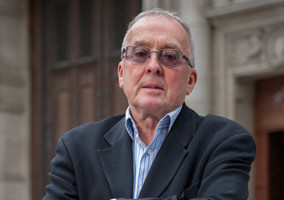Drawing on the inquiry she’s leading into the research needs of the charity sector (to which I’ve contributed in a small way via its advisory board), Caroline Fiennes was reported last month as saying that most academic research into charity is seen as “unintelligible and unused”.
The suggestion that it’s unused is hardly news in one sense – the job of academic centres (especially those funded by the Economic and Social Research Council) is about conducting robust studies of big-picture issues, not providing quick fixes for individual organisations. The clue is in the title – the Third Sector Research Centre’s job is to take a sector-wide perspective.
Recent examples of our work include Mohan and McKay’s work on high salaries in charities, David Clifford on the impacts of recession and austerity on charity finances, or his study of charity survival rates. These all call into the question the easy generalisations you get from think tanks and infrastructure bodies.
But it does have practical value. Our work has been regularly featured in Parliamentary Committees, drawn on by significant inquiries (e.g. Civil Society Futures), influenced funding allocations (e.g. the 2010 Transition Fund for the sector) and of course covered in the press and broadcast on the BBC. This suggests we are informing debate at a high level.
Reaching individual organisations is obviously different, with over 200,000 registered charities in the UK – and centres like mine could never do more than scratch the surface. A parallel from economics research is relevant: you would not expect the work of the Institute for Fiscal Studies to be influencing the cafes and corner shops nearby but you would expect that centre to impact upon public and policy debate.
Is our work unintelligible? Academics are criticised for writing in an academic style. Guilty as charged. What that means is that we make our sources and methods transparent, and we spell out what you can and cannot learn from them. That does take a bit more concentration than reading a Twitter feed, but also means that the findings have got more substance than – say - yet another local survey of organisations, done largely for cathartic reasons, protesting that the sky is falling in, or superficial studies of high salaries which carefully exclude charities like private schools.
Hidden behind paywalls is another charge. Open access to academic journals is a challenge but we have always seen it as a priority to get the research out there and TSRC has published an open-access working paper roughly every three weeks since its inception. Increasingly the paywalls will be coming down because the major funders of research are insisting on it.
We agree with the suggestion that there is a problem of knowing what is out there. As many will remember, TSRC established its “Knowledge portal” to develop an online repository of research findings. Unfortunately we were unable to secure longer-term funding for it – though we think it is an idea which still has value because of the proliferation of work in this field.
In short: by all means read our work and disagree with the findings we generate, but don’t criticise us for something that we were not established to do.
John Mohan is professor of Social Policy and director of the Third Sector Research Centre
|
Related articles











